#indigenous peoples of the americas
Text

Raiders of the Lost Ark (1981, Steven Spielberg)
10/03/2024
Raiders of the Lost Ark is a 1981 film directed by Stephen Spielberg and written by Lawrence Kasdan, based on a story by George Lucas and Philip Kaufman, as well as the progenitor of the Indiana Jones film saga.
It was the highest-grossing film of 1981, earning approximately $330.5 million worldwide, and also a critical success, receiving praise for its modern take on the serial film, its seamless action and adventure, as well as for the cast, especially Ford, Allen and Freeman. The film was nominated for several awards and, among others, won five Academy Awards, seven Saturn Awards and a BAFTA Award.
The United States Library of Congress selected it for preservation in the National Film Registry in 1999.
In 1936, American archaeologist Indiana Jones leads an expedition to recover a Golden idol from a Peruvian temple with snares and deadly traps. When it seems to be successful, the local guide Satipo betrays Jones to steal the idol, only to end up killed by a trap, and only Jones manages to escape alive with the idol from the crumbling temple. Rival archaeologist René Belloq corners him and steals the idol. Pursued by the dangerous Hovitos Indians, allies of Belloq himself, Jones escapes on a waiting seaplane.
After returning to his university, Jones, along with colleague and friend Marcus Brody, is informed by two US Secret Service agents that the Nazis are digging in Tanis, Egypt, and one of their telegrams mentions Jones' old mentor, Abner Ravenwood. Jones deduces that the Nazis seek the mythical Ark of the Covenant, hidden in a secret chamber in the city, which they believe will make them invincible. To find it they must get their hands on the Staff of Ra amulet, guarded by Abner, which can indicate where the chamber is located via a scale model of the city.
At a bar in Nepal, Jones reunites with Abner's daughter, Marion Ravenwood, with whom Jones had an illicit affair, and learns that Abner is dead. The bar is later set on fire during a scuffle with a group of Nazis, led by the sinister Gestapo agent Arnold Ernst Toth, intent on taking the medallion from Marion.
#raiders of the lost ark#film#1981#steven spielberg#george lucas#philip kaufman#indiana jones#Film col maggiore incasso per ogni anno#Serial film#academy awards#saturn awards#British Academy Film Awards#library of congress#national film registry#Peru#List of Indiana Jones characters#Indigenous peoples of the Americas#seaplane#United States Intelligence Community#nazism#tanis#egypt#ark of the covenant#Stick#Ra#scale model#Bar#nepal#marion ravenwood#gestapo
2 notes
·
View notes
Text
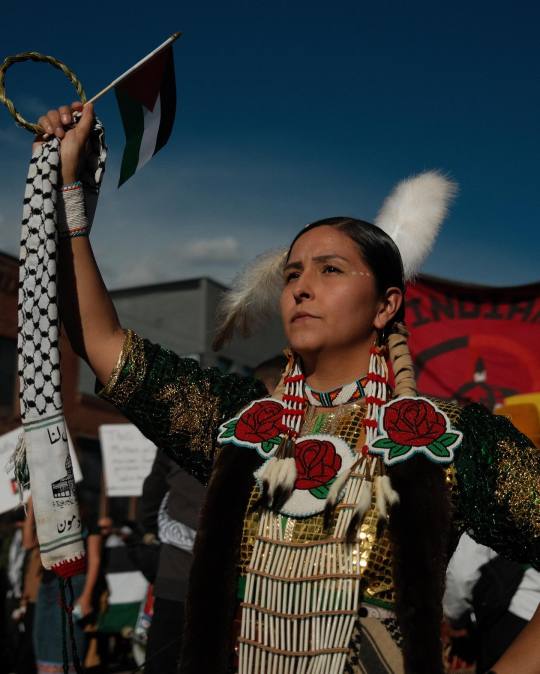
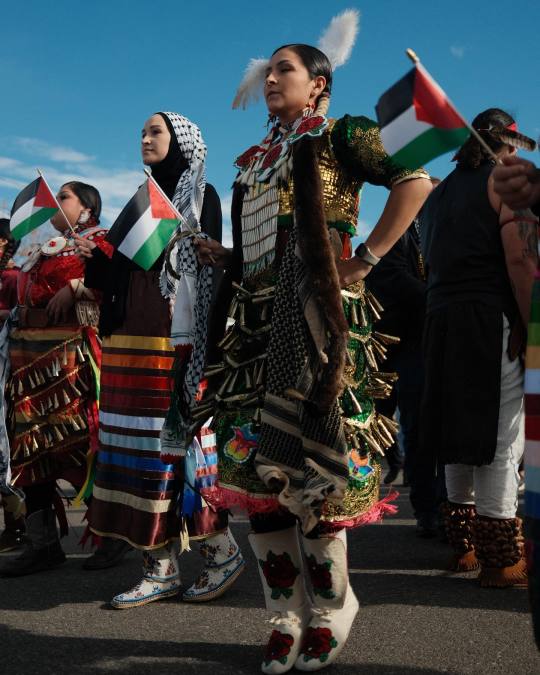
Native Americans march in solidarity with Palestine
Denver, Colorado USA
© Malek Asfeer
#Photography#People#Native American#Indigenous#USA#Palestine#Palestinian#Arab#America#American#Dener#Colorado#Folk dress
19K notes
·
View notes
Text
Americans not giving a shit about the wildfires burning down forests and homes in Canada until smoke starts spreading across the border. Meanwhile Indigenous communities across the country are far more likely to be impacted by the fires and I’ve seen all of one link to a charity and about nine million memes. 🙃
#yeah yeah hashtag notallamericans or whatever the fuck#I’m just irritated watching people whine or centre themselves#like sorry your clothes smell like smoke gladys but people have lost their fucking homes#and the government does fuck all for indigenous communities#so you know who’s gonna end up getting more aid#but sure brad can’t go out for his usual morning jog because of the canadians#also all these fucking news articles making ir about america as if canada has somehow done this on purpose out of spite#someone buy me a punching bag for my birthday thanks#artschoolrambles
18K notes
·
View notes
Text
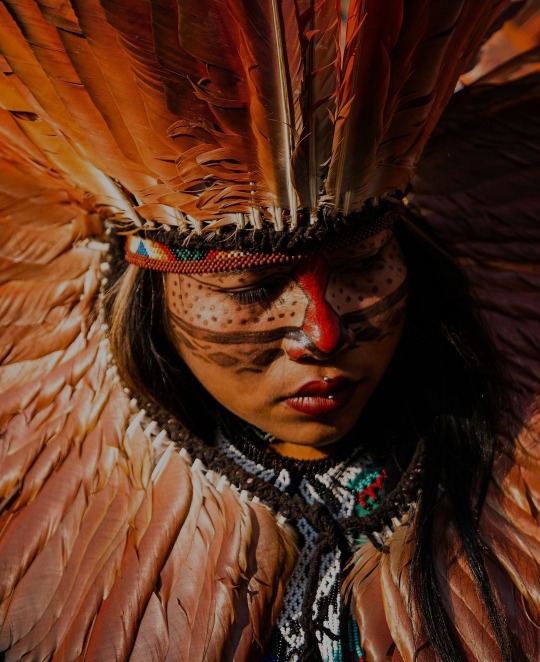
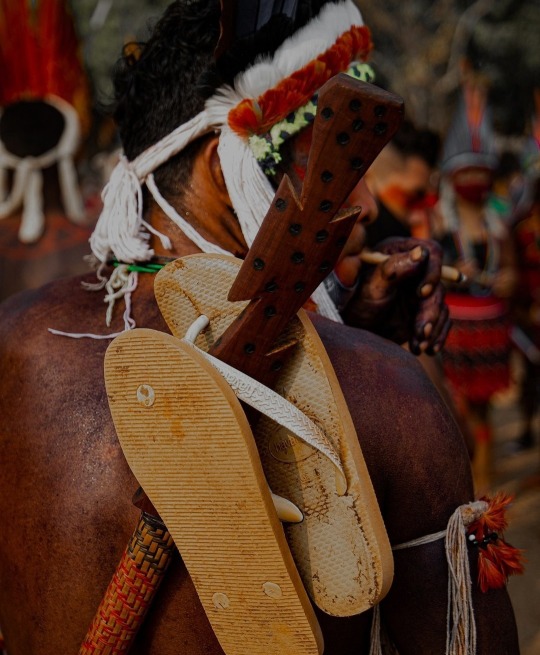
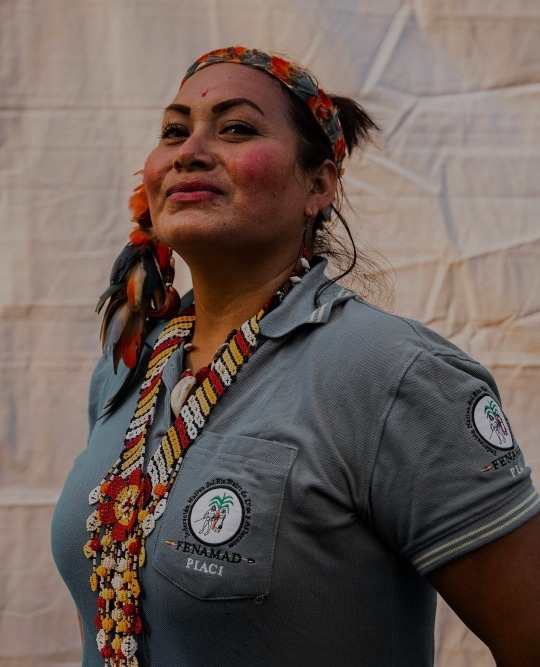

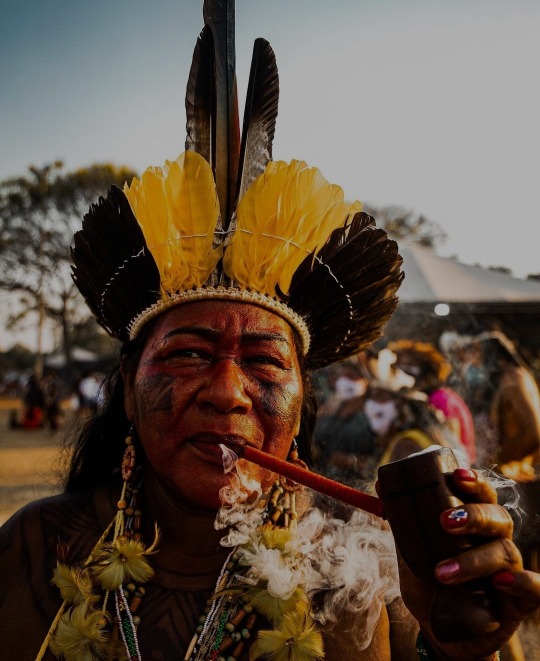
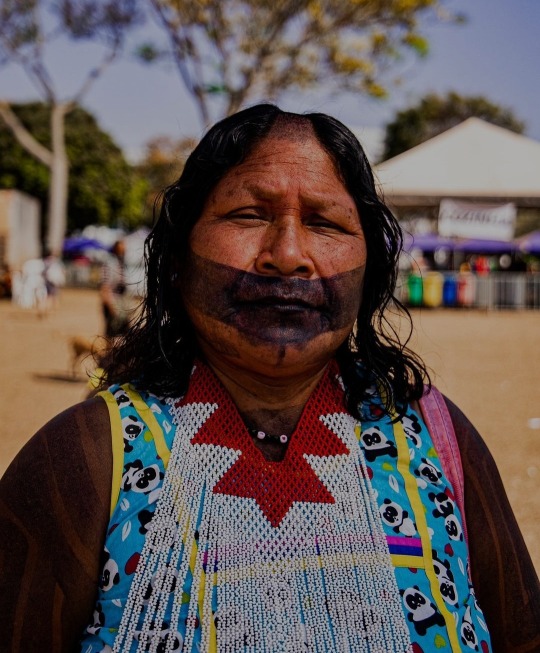


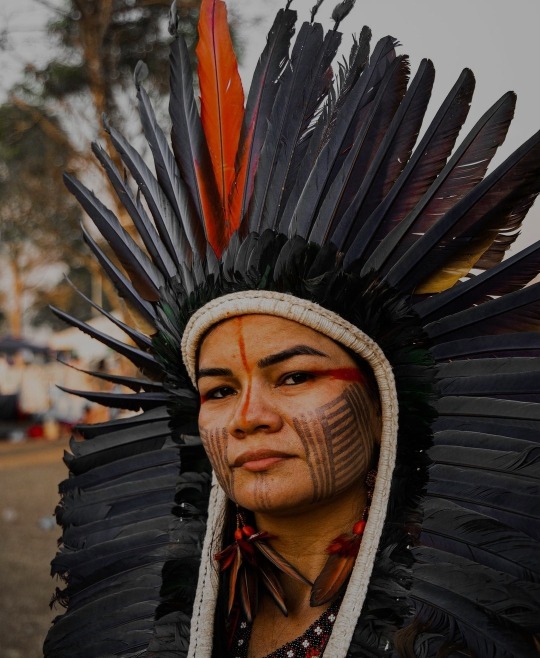

Marcha das Mulheres Indígenas, Brasília, 2021 🏹
#brasil#brazil#photography#women#indigenous issues#indigenous women#indigenous rights#indigenous people#indigenous#native women#native american#first nations#latin america#america latina#latinoamerica#meus posts
8K notes
·
View notes
Text
It's important to recognise that what's happening in Palestine, what we are witnessing and what people are experiencing, are not isolated to Palestine.
You may hear people talk about the war in Sudan, the silent holocaust in Congo.
It's because these and so many more atrocities in the world are linked. They are preperuated by the same systems.
[Video Transcript:
So as a Palestinian when I say Free Palestine, I am not just talking about Palestine. I started nursing school in 2015 at Saint Louis, just a few miles away from where Michael Brown was killed by police.
Being in that city at that time, watching Black Lives Matter being born, stirred up a lot of feelings for me as a Palestinian.
I saw a country justifying a child being murdered by the state, in the street. I saw the people protesting that murder being vilified.
Standing there, protesting, watching a militarised police force with tear gas and rubber bullets matching towards me.
And I thought, this is that.
As a Palestinian to understand what is going on in Palestine is to understand the de facto aphartied that black Americans experience here in the states.
It's not an accident that when my grandfather came here, he was told to sit and the back of the bus. And it's not an accident that he marched with MLK.
It has been black and Palestinian solidarity, and it continues to be black and Palestinian solidarity.
Because yes, Free Palestine is about Palestine ceasefire now and the military occupation of the Palestinian people. It's also about resisting the global colonial hegemonic structure.
Because the shit happening there is happening here. If it isn't Palestinian women and babies being killed by bombs in Gaza, it's black women and babies being killed in American hospitals.
If its not Palestinian girls missing in the rubble. It is missing and murdered indigenous women here in the United States.
The rage I feel when I hear the names Michael Brown and Treyvon Martin is the same rage I feel when I hear the names Shireen Abu Akleh and Ahmad Manasra.
That's not to say that allyship is transactional, it is to say that the only thing we have is each other.
There's a reason that when people ask me about Free Palestine, I will point them to books on Black Lives matter.
When I say Free Palestine, yes I mean Free Palestine but I also mean Black Lives Matter, I also mean abolition now. I also mean reparations, I also mean land back.
This movement cannot lose steam, not just because there is currently a genocide being perpetuated against my people. And every minute we don't do something Palestinian lives are being lost.
But because this is a global struggle for justice. It does not start and end with Palestine, we will not be free until all of us are free.
The world is waking up, there has never been global solidarity for Palestine like this.
And we have them so scared. The violence is so disproportional because we are challenging a global power structure. Don't let the momentum die because this is about all of us.
Ceasefire now.
End the occupation.
But know what I mean when I say, Free Palestine.
End Transcript.]
Books shown in the video:
"When they call you a terrorist a black lives matter memoir" by Patrisse Khan-Cullors & asha bandele.
"Freedom is a constant struggle. Ferguson, Palestine and the foundations of a movement" by Angela Y. Davis
#free palestine#free gaza#black lives matter#usa#us#america#indigenous people#native american#free sudan#free congo#blm#human rights
1K notes
·
View notes
Text
Okay here's my spicy take:
It's really convenient for white westerners, especially Americans, to have the stance that being indigenous expires a certain time after colonization and I think that stance isn't pushed back against nearly often enough. And to go a step further I think the take is itself a subtle act of colonization
#like if we apply the logic they use for Jew to north america#then there will come a time the Lakota or Dine will not be indigenous#but Caucasian Jeff from chicago will be#like dont get me wrong i see how people call it out for antisemitism which it is#but its also testing the waters to further invalidate native north american indigenous rights#and i think that needs to be acknowledged more often
274 notes
·
View notes
Photo

A Zapotec Terracotta Figural Urn of the Butterfly God (Ītzpāpālōtl) found at Monte Alban in Oaxaca, Mexico, Circa 200-600 AD. Sold at sotheby's in 2017 for $200,000
#zapotec#olmec#mayans#itzpapalotl#monte albán#oaxaca#pre-columbian#mexico#central america#indigenous people#american indians#atlantis#terracotta#sothebys#art
434 notes
·
View notes
Text
Disclaimer: I am not the original owner or creator of this content. The source is listed below.
#tiktok#palestine#joe biden#biden administration#the united states of america#united states#native#indigenous#indigenous people#free palestine#free gaza#free the west bank#free west bank#free golan heights#israel#us southern border#southern border#israel is an apartheid state#israel is committing genocide
211 notes
·
View notes
Text
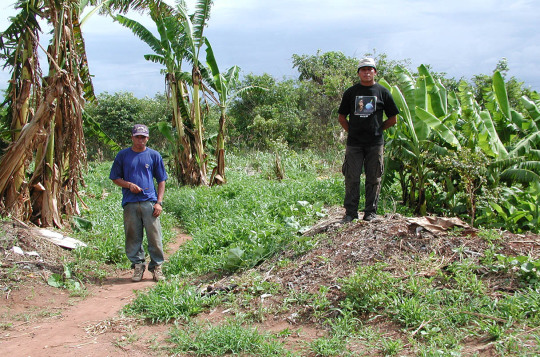
Ancient Amazonians created mysterious ‘dark earth’ on purpose
Soil study suggests today’s Indigenous Amazonians are making new terra preta
Mysterious patches of fertile black soil pepper the verdant Amazon rainforest. They sit in stark contrast with the reddish, eroded soil that dominates the basin.
Researchers have long thought this Amazonian dark earth—or terra preta—was created by pre-Hispanic Indigenous civilizations, which have inhabited the region for millennia, but it wasn’t clear how.
Now, a multidisciplinary team of scientists and Indigenous partners suggests the ancient Amazonians intentionally created the rich soil thousands of years ago to better foster their crops, and that their modern-day descendants are still making new terra preta today.
Read more: https://www.science.org/content/article/ancient-amazonians-created-mysterious-dark-earth-purpose
#terra preta#black soil#pedology#soil#ecology#ancient amazon#amazon#south america#indigenous people#archaeology
179 notes
·
View notes
Text

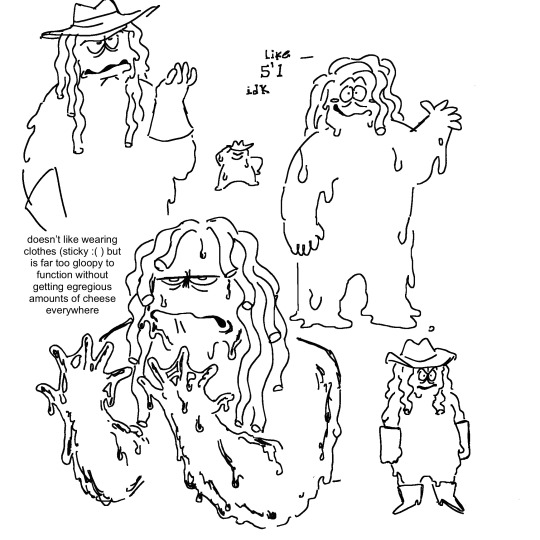


we all know human vigilante… but what about… slightly human vigilante
#pizza tower#pizza tower vigilante#the vigilante#vigilante#the noise#pizza tower au#if i was made of cheese i would probably stress-eat my hair too#ily vigert ebenezer lantte#some design notes:#vigi will always be short and fat to me. anything else just feels off for some reason#also as we all know#the way indigenous people are shown in this game is Horrendous#so as a native person i was like#hmm. native codes your vigi#it’s subtle cuz it’s not plot important or anything#it doesn’t rlly change anything except flipping the cowboy movie stereotypes#so i thought it would be fun#the turquoise bits on his outfit are inspired by Diné jewelry and metalwork :3#the braids are just cuz it looks cool not cuz braids = native lol#also holy fuck epiphany: native vigi speaks to the mixed experience#HEAR ME OUT HEAR ME OUT#you are native in the sense that you have native family and community u grew up with#but you are also#made of cheese#something decidedly incredibly not native#bc the entire concept of dairy was imported to the americas by europeans#you are mixed native and white👍#he’s literally me fr#ANYWAYS. don’t take any of that very seriously but it is an interesting metaphor#sorry for the essay in the tags. it will happen again
72 notes
·
View notes
Text
25 YA Books for Indigenous Peoples Day

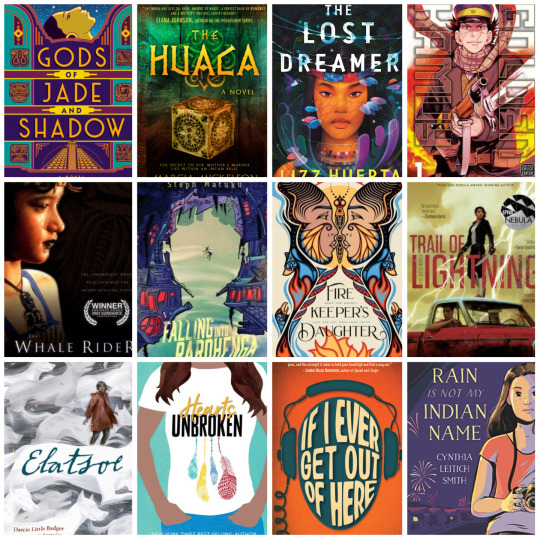
NOTES: For brevity and diversity, I did not include all the North American Native books I found, but there are plenty more - feel free to post your favorites in the comments! Most books are from indigenous authors, but not all - do your own research if you like. Not all books may be “technically” YA. I’d love to hear more suggestions of Latin American indigenous stories or Hawai’ian native stories which were difficult to find.
EDIT: This is just a random list by a random tumblr blog from 2022 - get out there and find your own books or list some in the comments if you find this list lacking.
Australia
The Things She's Seen by Amebelin & Ezekiel Kwaymullina
The Boy from the Mish by Gary Lonesborough
Becoming Kirrali Lewis by Jane Harrison
Swallow the Air by Tara June Winch
Canada
The Missing by Melanie Florence
Sorrow's Knot by Erin Bow
Son of a Trickster by Eden Robinson
The Marrow Thieves by Cherie Dimaline
A Girl Called Echo by Katherena Vermette
Surviving the City by Tasha Spillett
Japan - Ainu
Golden Kamuy by Satoru Noda
Latin America
Saints of the Household by Ari Tison
Tree Girl by Ben Mikaelsen
The Huaca by Marcia Argueta Mickelson
Gods of Jade and Shadow by Silvia Moreno-Garcia
The Lost Dreamer by Lizz Huerta
New Zealand - Maori
The Whale Rider, Witi Ihimaera
Falling into Rarohenga by Steph Matuku
United States
Firekeeper's Daughter by Angeline Boulley
Trail of Lighting by Rebecca Roanhorse
Elatsoe by Darcie Little Badger
The Absolutely True Diary of a Part-Time Indian by Sherman Alexie
If I Ever Get Out of Here by Eric Gansworth
Hearts Unbroken by Cynthia Leitich Smith
Rain is Not My Indian Name by Cynthia Leitich Smith
#indigenous peoples day#indigenous#book list#fuck columbus#native american#first nations#diverse ya#diversity in media#diverse books#aboriginal#maori#latin america#north america#south america#australia#canada#japan#new zealand#united states
2K notes
·
View notes
Text
"When President Lula da Silva took office this year in Brazil, many environmental and indigenous rights groups hoped he would fulfill campaign promises of better protection for the Amazon rainforest and the people who live there.
Nearly four months into his tenure and early signs are that Lula was telling the truth, as Brazilian police have evicted dozens of illegal gold miners from the Yanomami Reserve, an area the size of Portugal inhabited by around 35,000 [Indigenous people].
Illegally-mined gold accounts for around half of all the country’s exports, and a new Environment of the Amazon division of the federal police is seeking international assistance in building a first-rate structure for targeting the outside funding toward and sales from illegal gold mining.
Reuters says that so far, the new division has ousted nearly all miners from the area, including overseeing the destruction of 250 mining camps and 70 low-tech boats used for dredging. 48 planes and helicopters for smuggling the gold out of the reserve have been seized as well.
The police hope to use radioisotope technology and methods to be able to pinpoint the exact mineralogical makeup of illegally mined gold as a way of targeting it in the market even after it’s melted into ingots.
They also plan to remove miners from 6 other Amazon reserves this year, while setting up a permanent, floating police station on a river in the Yanomami Reserve.
At the moment, the Lula Administration is considering the best set of laws for tackling the problem. While 804 miners have been arrested in the raids, all were let go, and many others fled in the police advance.
Humberto Freire, from the new Amazon division, told Reuters he and his department hope to create a sophisticated electronic tax receipt for any transactions of precious metals to help pinpoint sales and distribution of suspected illegal bullion."
-via Good News Network, 3/23/23
youtube
-video via Reuters, 3/22/23
#lula da silva#amazon#amazon rainforest#rainforest#conservation#indigenous peoples#indigenous activism#illegal mining#gold mining#brazil#south america#yanomami#environmental justice#amazonia#latin america#conservation news#good news#hope#Youtube
458 notes
·
View notes
Text
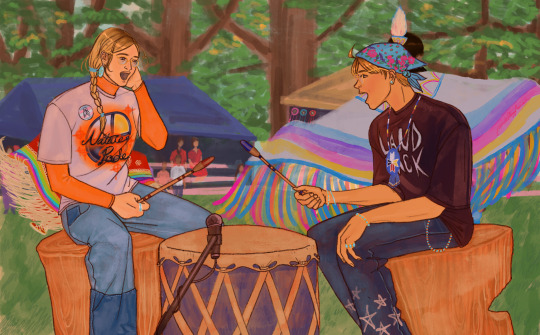
[it’s always a good day to be indigenous!]
#hetalia#hws america#aph america#hws canada#aph canada#na brothers#the DEADLIEST singers in turtle island!!!#they 100% only perform to be paid in frybread#AND happy belated indigenous peoples month!!#landback mfers 🧡#caption is a quote from the movie smoke signals#TRULY A PHENOMENAL MOVIE#kikidoodlez
116 notes
·
View notes
Text
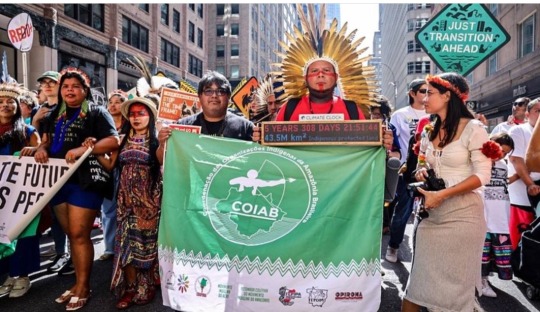
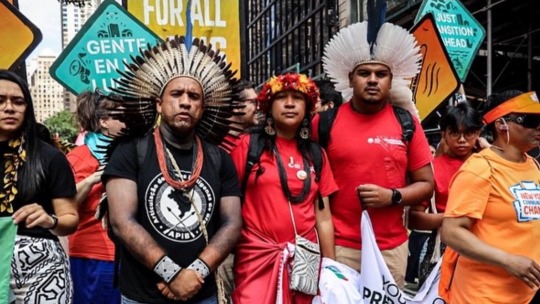
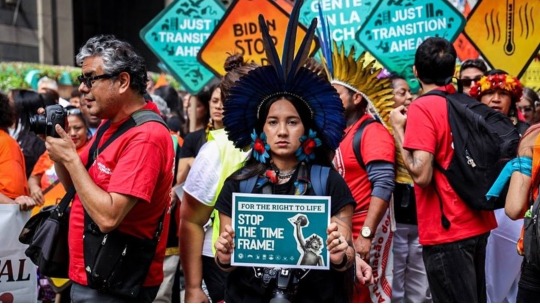
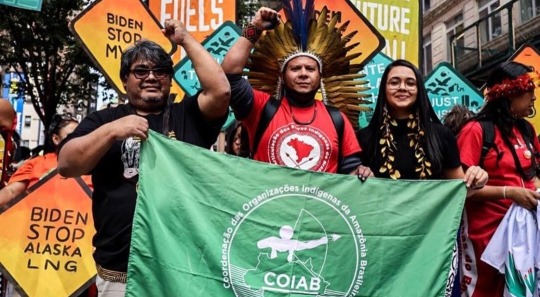
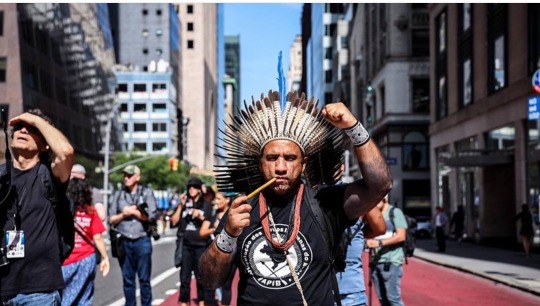
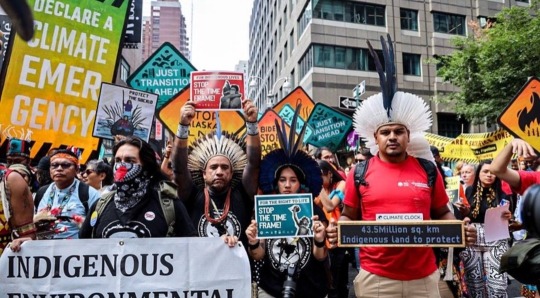
"Trial scheduled for September 20th at the Supreme Federal Court may determine the future of Indigenous Lands in Brazilian territory and be crucial for the global climate. The indigenous movement is mobilizing across Brazil, and an indigenous delegation from Apib is in New York during Climate Week to strengthen the international mobilization campaign in defense of Indigenous Lands rights."
"We are on the land, and the land is within us. If the land dies, we as indigenous peoples die."
The Articulação dos Povos Indígenas do Brasil (Articulation of Indigenous Peoples of Brazil — APIB) is calling for nationwide mobilizations this week and participating in the New York Climate Week to alert the world to the risks of the Supreme Federal Court (STF) judgment scheduled for September 20th. The court will vote on the legitimacy of the legal concept known as the "Temporal Framework," advocated by the Brazilian agribusiness, which could reevaluate Indigenous Land demarcations and impact global climate crisis mitigation efforts.
The Temporal Framework suggests that only indigenous people who can prove they were living on the land in 1988, the same year the Federal Constitution was created, should have rights to the land. This disregards the forced displacements of hundreds of indigenous groups who could only reclaim their traditional lands after Brazil's redemocratization in the late 1980s.
This week, the 15th edition of Climate Week is taking place in New York from September 17th to 24th, alongside the 78th Session of the United Nations General Assembly from September 19th to 23rd, which will feature a speech by President Lula during its opening. A delegation of 10 indigenous leaders is in New York to participate in Climate Week's activities. The international mobilization's goal is to emphasize to the world that the Temporal Framework is a threat to the lives of Brazil's indigenous peoples and could exacerbate the climate crisis, as Indigenous Lands serve as a reservoir of life on the planet.
Apib and its regional organizations are reinforcing mobilizations in territories, cities, and Brasília against the Temporal Framework on September 20th. The goal is to monitor the trial and strengthen the next steps of the indigenous movement's fight. The organizations within Apib mobilized over 220 protests in 21 states, including the Federal District, between May and June.
Five Supreme Federal Court (STF) justices are yet to vote in the trial. The current tally stands at four votes against the Temporal Framework thesis and two in favor. Justices Edson Fachin, Alexandre de Moraes, Cristiano Zanin, and Luís Roberto Barroso have expressed opposition to the agribusiness-backed thesis, while the only favorable votes came from justices appointed by former President Jair Bolsonaro, André Mendonça, and Nunes Marques.
On the same day as the STF vote, the Brazilian Senate attempts to put the Temporal Framework into law. The ruralist caucus in Congress seeks to create tension with the Brazilian judiciary since there is a possibility that the STF may invalidate the Temporal Framework thesis.
In addition to the Temporal Framework, Bill 2903 proposes other setbacks to the rights of indigenous peoples, such as the construction of highways and hydroelectric plants in indigenous territories without free, prior, and informed consent from affected communities. The proposal also aims to allow farmers to enter production contracts with indigenous people, violating the rights of indigenous peoples to the exclusive use of demarcated territories.
While some falsely claim that "there is too much land for too few indigenous people in Brazil," Apib counters that there is too much land for too few farmers and that agribusiness promotes the illegal invasion of indigenous lands. The entity asserts,
"There is no solution to the climate crisis without guaranteeing the rights of indigenous peoples and the demarcation of their territories."
Currently, nearly half of Brazil's land is in the hands of rural producers. Of the total land in the country, 41% corresponds to rural properties, 13.7% to indigenous lands, and 45.2% to other purposes, according to data published in the Official Gazette of the Union. Indigenous Lands are a guarantee of life for indigenous peoples and for all of humanity, which depends on the climate's future.
"As worsening climate crisis unfolds, many will be marked in history as accomplices to the new colonialism threatening the survival of us, indigenous peoples who inhabit the vast territory known as Brazil, and the future of all humanity because there is no solution to the climate crisis without the involvement of indigenous peoples," emphasizes Dinamam Tuxá.
Key activities of Apib during the 15th edition of Climate Week from September 17th to 24th:
On September 17th, Apib participated in the Climate Week march through the streets of New York in support of the Fight Fossil Fuel Strike. The indigenous delegation from Apib denounced the threat posed by the Temporal Framework thesis, highlighted the indigenous emergency situation concerning extractive industries and agribusiness that lead to multiple instances of violence in our territories. Additionally, as part of the Climate Week agenda, it's worth noting that Apib's executive coordinators Kleber Karipuna, Dinamam Tuxá, and other members of the indigenous delegation will participate in a talk on September 19th titled "FCLP: Rights, Participation, and Benefits for Indigenous Peoples and Local Communities in Forest Climate Financing," organized by the Forest and Climate Leaders Partnership. On September 22nd, a portion of the delegation will be present at a dialogue co-organized with H.E Razan Al Mubarak, the current president of the International Union for Conservation of Nature, to assess progress in the COP28 agenda with the aim of collectively identifying meaningful and respectful ways for Indigenous Peoples to engage in the COP.
About APIB
The Articulation of Indigenous Peoples of Brazil (Apib) is a nationally recognized entity within the indigenous movement in Brazil, created from the grassroots up. It brings together seven regional indigenous organizations (Apoinme, ArpinSudeste, ArpinSul, Aty Guasu, Conselho Terena, Coaib, and Comissão Guarani Yvyrupa) and was founded with the purpose of strengthening the unity of our peoples, fostering coordination among different regions and indigenous organizations across the country, as well as mobilizing indigenous peoples and organizations against threats and infringements on indigenous rights.
Support/donate to APIB
APIB Instagram page
APIB Website
#yara.txt#brasil#brazil#latin america#america latina#south america#brazilian politics#brazilian indigenous people#indigenous people#indigenous#native american#native women#first nations#ndn#ndn tag#ndn tumblr#latinoamerica#environmentalism#climate crisis#climate emergency#nature#naturism#naturist#anti capitalism#capitalism#anti colonialism#anti colonization#colonialism#colonization#neocolonialism
182 notes
·
View notes
Text
does anyone have reading recommendations that clarify the difference between liberalism and fascism? I’m having trouble distinguishing what is just like normal levels of imperial/colonial violence conducted by a liberal state and what pushes it over the edge into a fascist state. Is fascism simply mature liberalism? Is it liberalism in crisis? Can we only make historical, reactive judgements about what is fascist, which is to say, can we only know if fascism occurred after it has come and gone? I take the general point that calling all liberal states fascist can let them off the hook for types of violence considered normal or “just doing business,” invisibilising the daily violences they conduct as part of the regular maintenance of a liberal capitalist state. People are calling the US fascist for its direct participation in and funding of the genocide in Palestine - a diagnosis I don't disagree with, but if that’s the case, where do you draw the distinction between the US being merely a liberal state with aggressive global imperial ambitions and the US being a fully fascist state? Perhaps more bluntly, what’s the difference between a liberal drone strike and a fascist one? I’m struggling to understand the value of the fascist label, because everything it describes (ultranationalism, a theory of racial and cultural degeneracy/decline, paranoia about an imminent external threat expressed as violence against internal populations deemed to have insufficient loyalty to the country, a turn towards a mythologised tradition of the past, imperial expansion, genocidal projects against minority populations, etc etc) just seems to me like a description of United States in general lol
#if we call all liberal states fascist we risk exceptionalising liberalism <- point I am sympathetic to#but if that’s the case then like what does the fascist label get us? What does it ‘do’ as analytical tool? How does it help us understand#the world today and the history of the world?#was the iraq war fascist? If so are we meant to understand that the US stopped being fascist for a couple years#and is now fascist again? Despite the continued occupation & violence & sanctions in Iraq Libya Yemen Afghanistan etc during that time ?#are all the coups it did in Latin America fascist or just normal liberal behaviour? Was the Korean War fascist? The Vietnam war?#what about the Cold War? What about the genocide of indigenous people in North America? What about chattel slavery?#I guess I’m just at like a point in my knowledge of history that none of the governments or movements or actuons called fascist#seem even remotely different from just like regular imperial and colonial violence#and so like my current inclination is that either all of this is liberal or all of this is fascist#and that doesn’t feel satisfactory lol
87 notes
·
View notes
Text
the end of capitalism is impossible (no, it is nigh)
or at least that is what people think.
people can imagine the end of the world easier than the end of capitalism.
they cannot fathom a society that doesn't need money. where people create things and do jobs not only because they enjoy them, but because their needs are actually being met by the civilization they're in.
i don't think people realize the state of our world. well. maybe they do, but they don't think deeply on how unnecessary and destructive it all is.
we produce things - food, entertainment, even lives - which we immediately discard. i mean this very literally. people do in fact do this with children.
some people lack so much self awareness that they don't really think about what it means to bring a child into this world. somehow they've forgotten how shitty it was for them. somehow they've forgotten how hard it was for their parents. or how our world has gotten progressively worse.
the climate crisis has reached a tipping point. our governments have not as been as useful as they could be. our technology is mostly used for nonsense and not furthering humankind/the planet.
we could be so much more.
ofc i am a disabled trans man of color. i work to make a living. i have not been lucky enough to be born into a wealthy family. or even a family that is particularly loving, if i'm being honest.
but i have been blessed in other ways. just as i have been cursed in other ways. some of them are connected. like my intelligence is a blessing and curse. as is my physical beauty. as is my awareness of these matters. my calling too.. to be involved in the spiritual world and cultivation..
many people before me have seen ways to end capitalism. even now we have those solutions.
i can't imagine advanced aliens live the way we do. that they use their technology to destroy and take. to subvert their own kind.
but maybe in their past they were like that.
i just hope we can get to a future where we're beyond this
#hopepunk#anti work#anti capitalism#late stage capitalism#democracy#republic#america#civilization#human rights#civil rights#indigenous folx#indigenous people#first nations#capitalism#conspiracy#government#us government#politics#anarchy#anarchocommunism#idk what you would call it#whatever star trek has but BETTER#not so much more of the same#bc you can tell those who created could barely fathom a way people live without some organization#but that is different than being ruled
172 notes
·
View notes